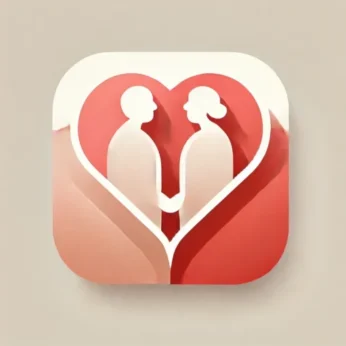Are you concerned that you or a loved one might be experiencing emotional abuse in a later-life relationship?
Emotional abuse can be a subtle yet devastating form of abuse that can occur in any relationship, including romantic partnerships, friendships, and even family dynamics. As we age, we may become more vulnerable to emotional manipulation and control, making it essential to recognize the signs of emotional abuse and take action to protect ourselves and others.
What is Emotional Abuse?
Emotional abuse, also known as psychological abuse, is a pattern of behavior that involves using emotions to control, intimidate, or manipulate another person. This can include verbal attacks, humiliation, intimidation, and emotional blackmail, among other tactics. Unlike physical abuse, emotional abuse can be harder to detect, as it often leaves no visible scars or bruises.
Signs of Emotional Abuse
So, how do you know if you or someone you care about is experiencing emotional abuse? Here are some common signs to look out for:
| Signs of Emotional Abuse | Description |
|---|---|
| Criticism and put-downs | Being frequently belittled, criticized, or humiliated in private or public settings |
| Emotional distancing | Being consistently ignored, dismissed, or given the silent treatment |
| Gaslighting | Being made to doubt one’s own perceptions, memory, or sanity |
| Manipulation | Being coerced into doing things you don’t want to do or manipulated into staying in the relationship |
| Threats and intimidation | Being threatened with harm, abandonment, or other forms of punishment |
| Emotional blackmail | Being forced to do something by using guilt, self-pity, or anger |
Why Do People Stay in Emotionally Abusive Relationships?
It’s essential to understand that people stay in emotionally abusive relationships for various reasons, including:
| Reasons for Staying | Description |
|---|---|
| Fear of loneliness | Fear of being alone or starting over |
| Fear of loss | Fear of losing the relationship, financial security, or social status |
| Low self-esteem | Feeling unworthy or unlovable |
| Trauma bonds | Developing strong emotional bonds with the abuser due to cycles of abuse and rescue |
| Social isolation | Being isolated from friends, family, or support systems |
How to Recognize Emotional Abuse in Later-Life Relationships
As we age, we may become more vulnerable to emotional manipulation and control due to physical decline, social isolation, or cognitive impairment. Here are some specific signs of emotional abuse to look out for in later-life relationships:
Elder Abuse
Elder abuse is a form of emotional abuse that specifically targets older adults. According to the National Institute on Aging, elder abuse can take many forms, including:
| Types of Elder Abuse | Description |
|---|---|
| Verbal abuse | Name-calling, threats, or insults |
| Emotional abuse | Isolation, intimidation, or humiliation |
| Financial abuse | Misusing or exploiting an older adult’s financial resources |
Signs of Emotional Abuse in Later-Life Relationships
In later-life relationships, emotional abuse can manifest in subtle yet destructive ways, such as:
| Signs of Emotional Abuse | Description |
|---|---|
| Diminishing autonomy | Being denied the right to make decisions or take control of one’s life |
| Emotional manipulation | Being coerced into doing things you don’t want to do or manipulated into staying in the relationship |
| Social isolation | Being isolated from friends, family, or social activities |
What to Do if You’re Experiencing Emotional Abuse
If you or someone you care about is experiencing emotional abuse, it’s crucial to take action to protect yourself or your loved one. Here are some steps you can take:
Seek Support
Reach out to trusted friends, family members, or support groups for emotional validation and help. You can also contact organizations like the National Domestic Violence Hotline (1-800-799-7233) or the National Center on Elder Abuse (1-855-444-3911) for confidential support and guidance.
Document Incidents
Keep a record of incidents of emotional abuse, including dates, times, and details of what happened. This can be helpful in building a case against the abuser or seeking legal protection.
Set Boundaries
Establish clear boundaries with the abuser and communicate them assertively. This can help you regain control over your life and relationships.
Seek Professional Help
Consult with a therapist, counselor, or other mental health professional who specializes in emotional abuse and trauma. They can help you develop a safety plan, process your emotions, and rebuild your self-esteem.
Consider Legal Action
If you’re in immediate danger, call emergency services or law enforcement. You can also explore legal options, such as seeking a restraining order or filing charges against the abuser.
Conclusion
Recognizing emotional abuse in later-life relationships is crucial for protecting ourselves and our loved ones from this devastating form of abuse. By understanding the signs of emotional abuse, why people stay in abusive relationships, and what to do if you’re experiencing emotional abuse, you can take action to break free from the cycle of abuse and build a safer, healthier life.
Meta description: Learn how to recognize emotional abuse in later-life relationships, including signs, reasons why people stay, and what to do if you’re experiencing abuse. Empower yourself or a loved one to break free from emotional manipulation and control.

